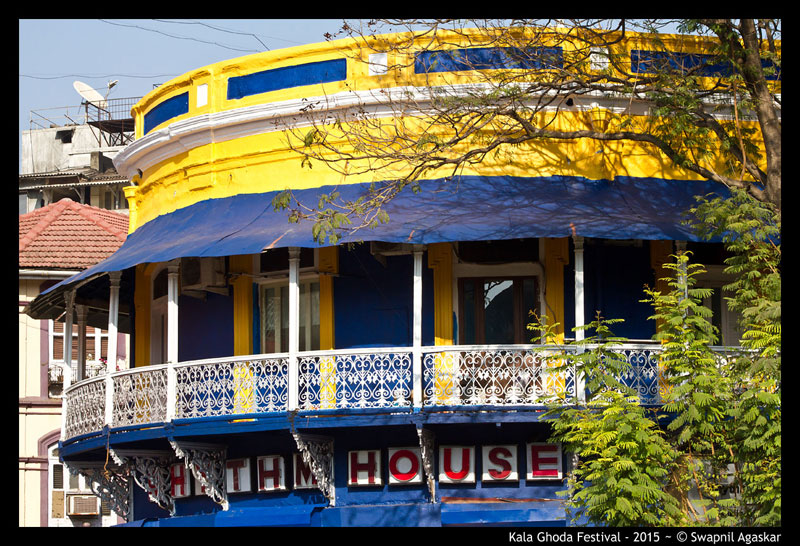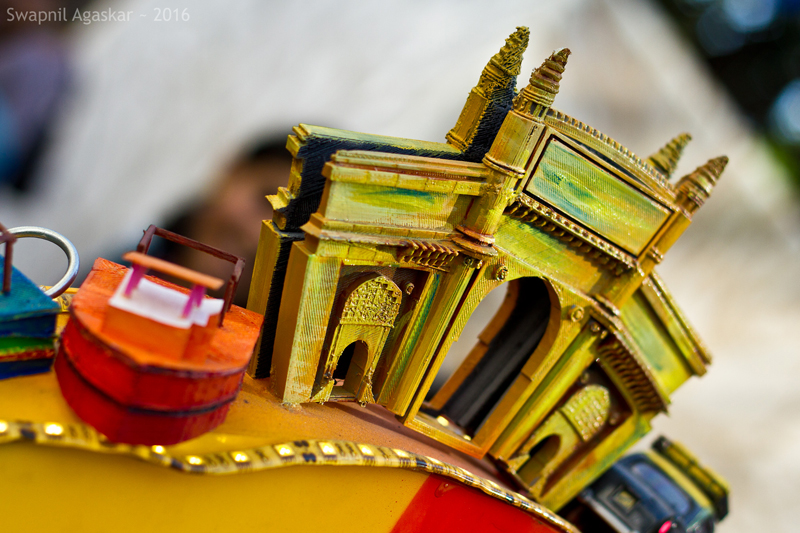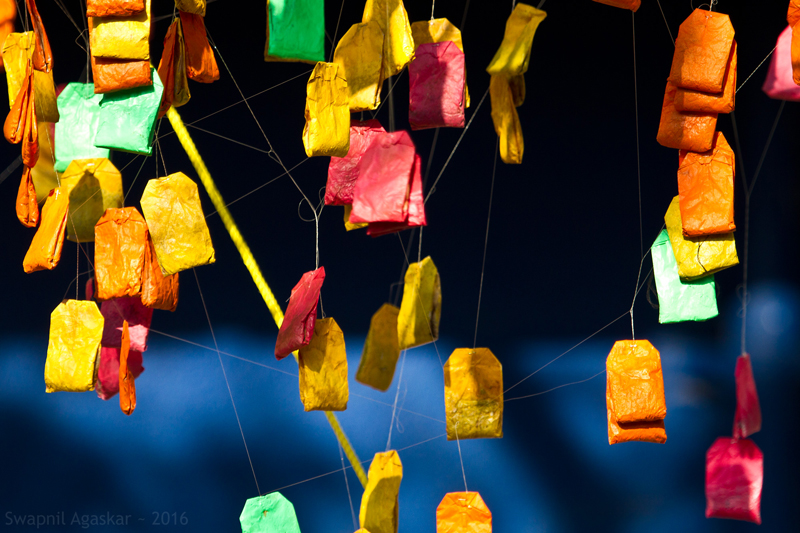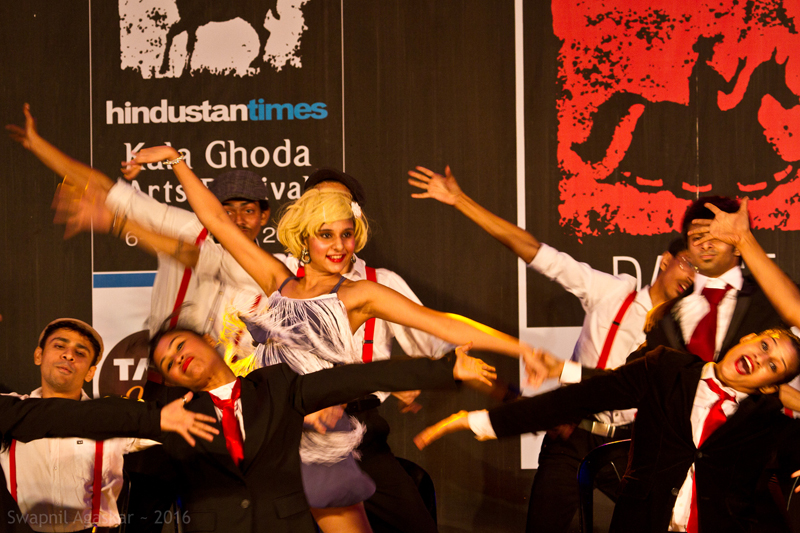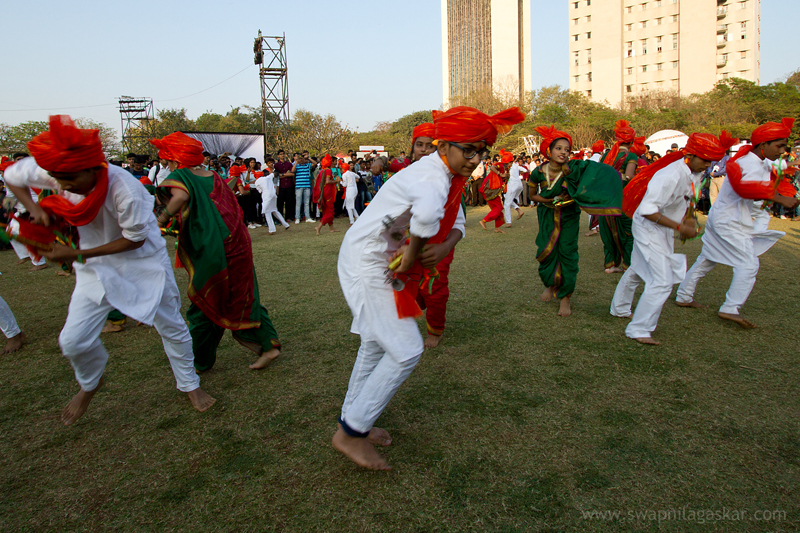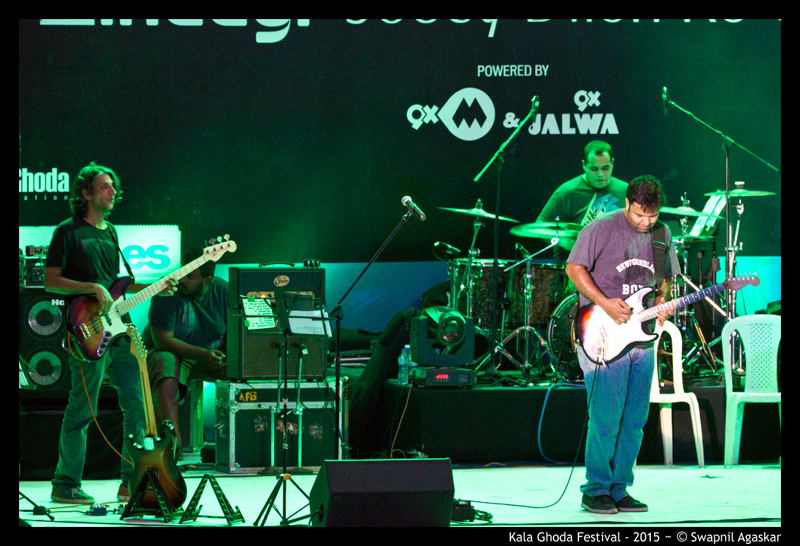Kala Ghoda Arts Festival (KGAF) was launched in 1999 to encourage art and art related activities in Mumbai. It is held in the precincts of the Kala Ghoda area, near the Jehangir Art Gallery.
The major events happen at Rampart Row, the road which joins the Kala Ghoda junction from Jehangir Art Gallery to the docks, near the BNHS Hornbill House. This is also the site of the iconic Rhythm House, probably the ultimate destination for music lovers of the city. Unfortunately, it closed down a few months ago.
KGAF started as a platform for lesser known artists and those from rural areas to get good exposure. Art installations and live art demonstrations were the highlights of the festival. It also gave an opportunity for the city dwellers to experience the amazing talent from the interiors.
In addition to the unknown artists, KGAF also hosted eminent celebrities, artists and musicians. The early years have seen great names like M F Husain and Ustad Zakir Hussain perform. Many local rock bands have been regular participants of this festival.
KGAF fast became a unique festival of Mumbai, giving a carnival-like atmosphere to the Kala Ghoda. Kala Ghoda was a venue to be at in February each year.
Over time, Kala Ghoda Arts Festival became the Times Of India Kala Ghoda Arts Festival. The commercial transition continued to its current format of Hindustan Times Kala Ghoda Arts Festival. Somewhere down the line, Culture replaced Art and in the recent years, has been taken over by the ‘youth culture’.
KGAF continues to be celebrated between the first Saturday and second Sunday of February. However, it has now become a game of footfalls , with the festival itself unofficially called the ‘Selfie Festival’. Almost everybody is scrambling to shoot their own self-portraits or group pictures in front of the installations. The purists still try to read the information boards below each art installation, though it is a tough struggle.
Art Installations at KGAF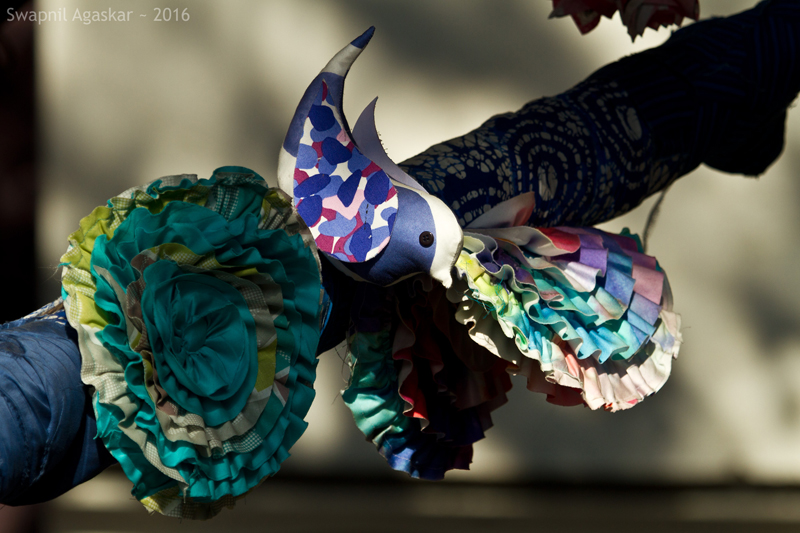
Cultural Potpourri
The Kala Ghoda Arts Festival displays a colorful mix of performing arts, both classical and western. There are some quality dance performances of Kathak, Bharat Natyam, Manipuri, Kuchipudi and various folk dances. These take place mostly at Cross Maidan, across the entire duration of the festival.

Prachee Shah performing Kathak at KGAF
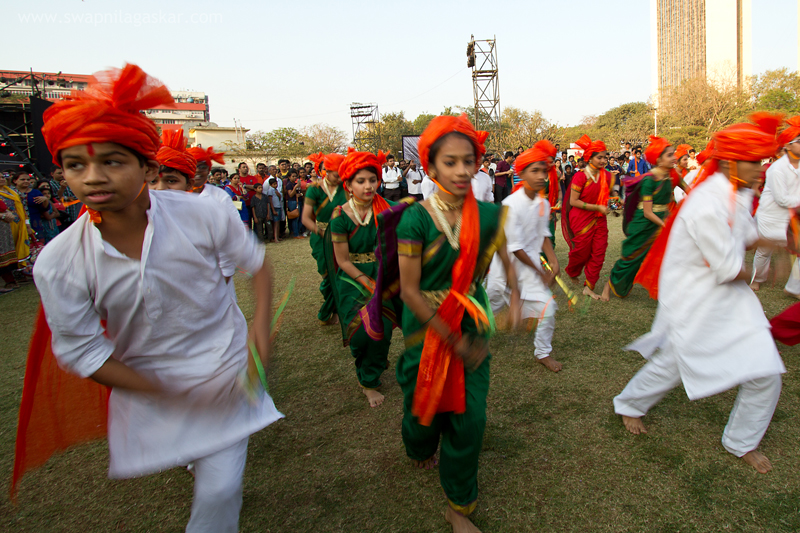
Malad Kandivali Education Society (MKES) students perform the traditional ‘Lezim’ at the KGAF 2017 opening ceremony
The venue for concerts – Asiatic Library
For the serious photographers, KGAF is still a good venue to capture candids and street images. With a lot of patience and experience, one can get some good images of the art installations. One thing is for sure, KGAF is a good event to master the art of avoiding raised cellphones and pouting selfie posers in the frames!
Action areas:
Rampart Row: The entire street is lined with shops and interspersed with art installations and street artists
Cross Maidan: Most of the Dance and Music performances happen here. The ground also has art installations and food plazas
Asiatic Library: This is the venue for the concerts. The steps of the Asiatic Library form a natural amphitheatre facing the Hornimon Circle
Museum Grounds: Mostly children’s play activities happen here. There is a pottery exhibition with live demonstration along with some art stalls and installations
Access:
Kala Ghoda is easily accessible from Churchgate on the Western Railway and Chatrapati Shivaji Terminus (CST)/ VT on the Central line.
From Churchgate, one can walk East towards Flora Fountain and then to Kala Ghoda via D N Road. Another route is across the Oval Maidan behind Eros theatre via the Mumbai University. From CST, its best to take a cab to Kala Ghoda



